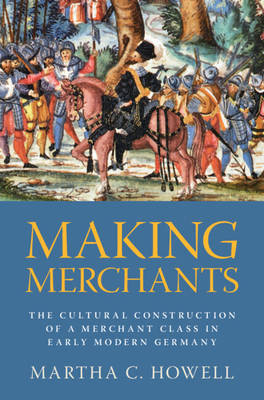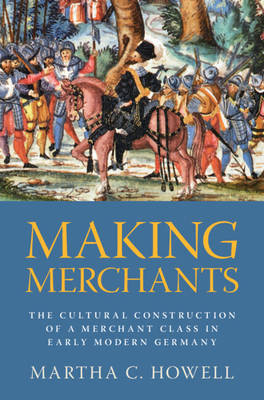
Bedankt voor het vertrouwen het afgelopen jaar! Om jou te bedanken bieden we GRATIS verzending (in België) aan op alles gedurende de hele maand januari.
- Afhalen na 1 uur in een winkel met voorraad
- In januari gratis thuislevering in België
- Ruim aanbod met 7 miljoen producten
Bedankt voor het vertrouwen het afgelopen jaar! Om jou te bedanken bieden we GRATIS verzending (in België) aan op alles gedurende de hele maand januari.
- Afhalen na 1 uur in een winkel met voorraad
- In januari gratis thuislevering in België
- Ruim aanbod met 7 miljoen producten
Zoeken
Making Merchants
The Cultural Construction of a Merchant Class in Early Modern Germany
Martha C Howell
Hardcover | Engels
€ 165,95
+ 331 punten
Uitvoering
Omschrijving
Using a rare collection of personal narratives written by successful merchants in early modern German-speaking Europe, this study examines how such men understood their role in commerce and in society more generally. As they told it, their honor was based not just on riches won in long-distance trade but, more fundamentally, on their comportment both in and outside the marketplace. As these men described their experiences as husbands and fathers, as civic leaders, as men who "lived nobly," or as practitioners of their faith, they did not, however, seek to obscure their role as merchants. Rather, they built on it to construct a class identity that allowed them entry into the period's moral economy. Martha C. Howell not only disrupts linear histories of capitalism and modernity, she demonstrates how the model of mercantile honor these merchants fashioned would live beyond the early modern centuries, providing later capitalists with a narrative about their own self-worth.
Specificaties
Betrokkenen
- Auteur(s):
- Uitgeverij:
Inhoud
- Aantal bladzijden:
- 280
- Taal:
- Engels
Eigenschappen
- Productcode (EAN):
- 9781009647663
- Verschijningsdatum:
- 9/10/2025
- Uitvoering:
- Hardcover
- Formaat:
- Genaaid
- Afmetingen:
- 152 mm x 229 mm
- Gewicht:
- 498 g

Alleen bij Standaard Boekhandel
+ 331 punten op je klantenkaart van Standaard Boekhandel
Beoordelingen
We publiceren alleen reviews die voldoen aan de voorwaarden voor reviews. Bekijk onze voorwaarden voor reviews.









